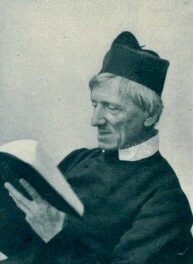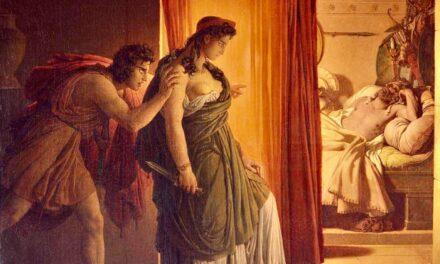We support our Publishers and Content Creators. You can view this story on their website by CLICKING HERE.
Don’t mistake me for a spoil-sport: on the contrary, I should like to revive all the good old customs genuinely associated with the joyous season of Christmas.
In city after city, I have seen Christmas parades on Thanksgiving Day! One might think that we were celebrating the birth of Mammon, rather than that of Jesus, the enemy of money-changers in the Temple. Though I applaud the pleasant custom of present-giving at Christmas, Christ did not die on the cross to enrich shopkeepers.
The earliest date on which there is justification for commencing the Christmas season, according to the ecclesiastical calendar, is December 16. More precisely, however, Yuletide extends from Christmas Eve, on December 24, to Twelfth Night (January 6), which honors the Three Wise Men, or the manifestation of Christ to the Gentiles. Churches may retain their Christmas decorations until February 1, or Candlemas Eve—February 2 being the anniversary of the purification of the Virgin. So, if pressed, I will permit the department-stores to put Santa Claus in their windows as early as December 16, and even to keep him there until February 1.
But to exhibit him on Thanksgiving? A thousand times NO!
Don’t mistake me for a spoil-sport: on the contrary, I should like to revive all the good old customs genuinely associated with the joyous season of Christmas. In getting and spending at this time, we have forgotten that merry-making has more to it than buying a pile of plastic toys to be smashed by bewildered children on Christmas morning. But your Christmas tree shouldn’t go up before Christmas Eve, and it shouldn’t come down until Twelfth Night–when it is supposed to be burnt.
My favorite Christmas entertainment is Snapdragon—a custom forgot by nearly all save your servant, though specially intended for Christmas Eve. This is an alarming but really harmless sport. One puts raisins in a broad, shallow bowl or tin into which a thin layer of brandy (or some other strong spirit) has been poured. Then one sets a match to the brandy, which burns blue and fierce. Everyone present tries to snatch out the flaming raisins; and whoever snatches the most, gets a prize. One can swallow the burning raisins without danger: a feat sure to win female admiration. The room should be darkened, to make the flames the more terrifying.
Twelfth Night, too, has its diversions, honoring the Magi. Of these the chief is the Twelfth-Night cake, containing a clove and a bean: the lucky people who get the slices containing these become king and queen of Twelfth Night, and hold court, obeyed by all celebrants. And there’s another game called Flapdragon, with a tankard and a candle–but hie you to the good old observances, gentle reader. Spend less, and celebrate more.
This is an excerpt from Russell Kirk’s Confessions of a Bohemian Tory.
This essay was first published here in December 2010.
The Imaginative Conservative applies the principle of appreciation to the discussion of culture and politics—we approach dialogue with magnanimity rather than with mere civility. Will you help us remain a refreshing oasis in the increasingly contentious arena of modern discourse? Please consider donating now.
The featured image is “Christmas – The Wassail Bowl,” Engraving by T. Hollis after R.W. Buss, and is in the public domain, courtesy of Wikimedia Commons.
Share This Story, Choose Your Platform!
Go to Top

 Conservative
Conservative  Search
Search Trending
Trending Current News
Current News 







